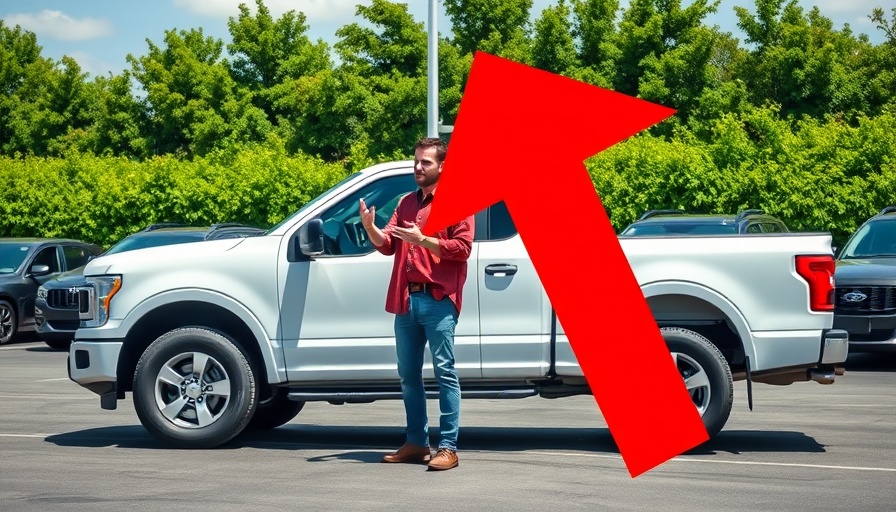
Why Understanding Pricing is Crucial for Car Buyers
When it comes to buying a car, many consumers are surprised to discover that the advertised price often doesn't reflect the final price they pay. Dealers can apply various fees and charges that aren’t listed in manufacturer advertisements, leading to confusion and frustration. As highlighted in the video, one of the most common mistakes is assuming that the online price you see will match what you actually have to pay at the dealership. Before you visit, it's essential to take a screenshot of any advertisement that catches your eye and confirm its accuracy with the dealership. This straightforward step can shield you from unnecessary costs and help you enter the dealer fully informed.
In BIGGEST Car Buying Mistakes That Dealers Don't Want You To Know, the discussion dives into crucial tips for avoiding costly errors, inspiring a deeper analysis of the car-buying process.
Shifting Focus: From Payments to Total Price
Another pitfall many buyers fall into is fixating on monthly payments rather than the overall price of the vehicle. The allure of a manageable monthly payment could hide additional costs that might inflate the total price significantly. Negotiating the total price first before discussing financing can save you a substantial amount in the long run. Remember, the lower your vehicle's total price, the lower your payments will be as well. If a dealer insists on talking about payments without revealing the total vehicle price immediately, consider that a red flag during your negotiation.
The Importance of Shopping Financing Options
Understanding your financing options is another critical aspect of the car-buying process. Many potential buyers mistakenly believe that the dealership automatically offers them the best financing terms. However, as discussed, it's beneficial to check the manufacturer’s website for competitive interest rates, as well as your bank or credit union. Knowledge is power, and the more informed you are about your options, the better decisions you can make.
Take Your Time: Don’t Rush into Signing
One significant mistake is rushing into signing a contract before fully understanding its implications. Once you’ve signed a purchase agreement, it becomes a legally binding contract, and there are generally no take-backs. It's crucial to take your time to thoroughly read the contract and understand all terms before making a decision. If you're feeling pressured, take a step back—this investment deserves your full attention.
Don't Fall for High-Pressure Sales in the F&I Office
The finance and insurance (F&I) office is another place where you may face pressure to purchase additional dealer products like extended warranties. While some of these products may add value, others may just drain your wallet. Always do your homework on these additional purchases before agreeing to anything. Remember, you have the right to say no and consider your options before making such commitments.
Keep Emotions in Check
Buying a car is often an emotional experience, but letting emotions cloud your judgment can lead to regrettable decisions. As advised, take your time and remember to think logically about your needs and budget. Only proceed with a purchase when you are absolutely sure it’s the right choice for you—this could save you both money and buyer's remorse in the future.
By avoiding these common mistakes, you can make a more informed choice and secure a better deal when purchasing your next vehicle. For more helpful tips, check out resources from organizations like OMVIC and stay educated about your consumer rights in the car-buying process!
 Add Row
Add Row  Add
Add 




Write A Comment